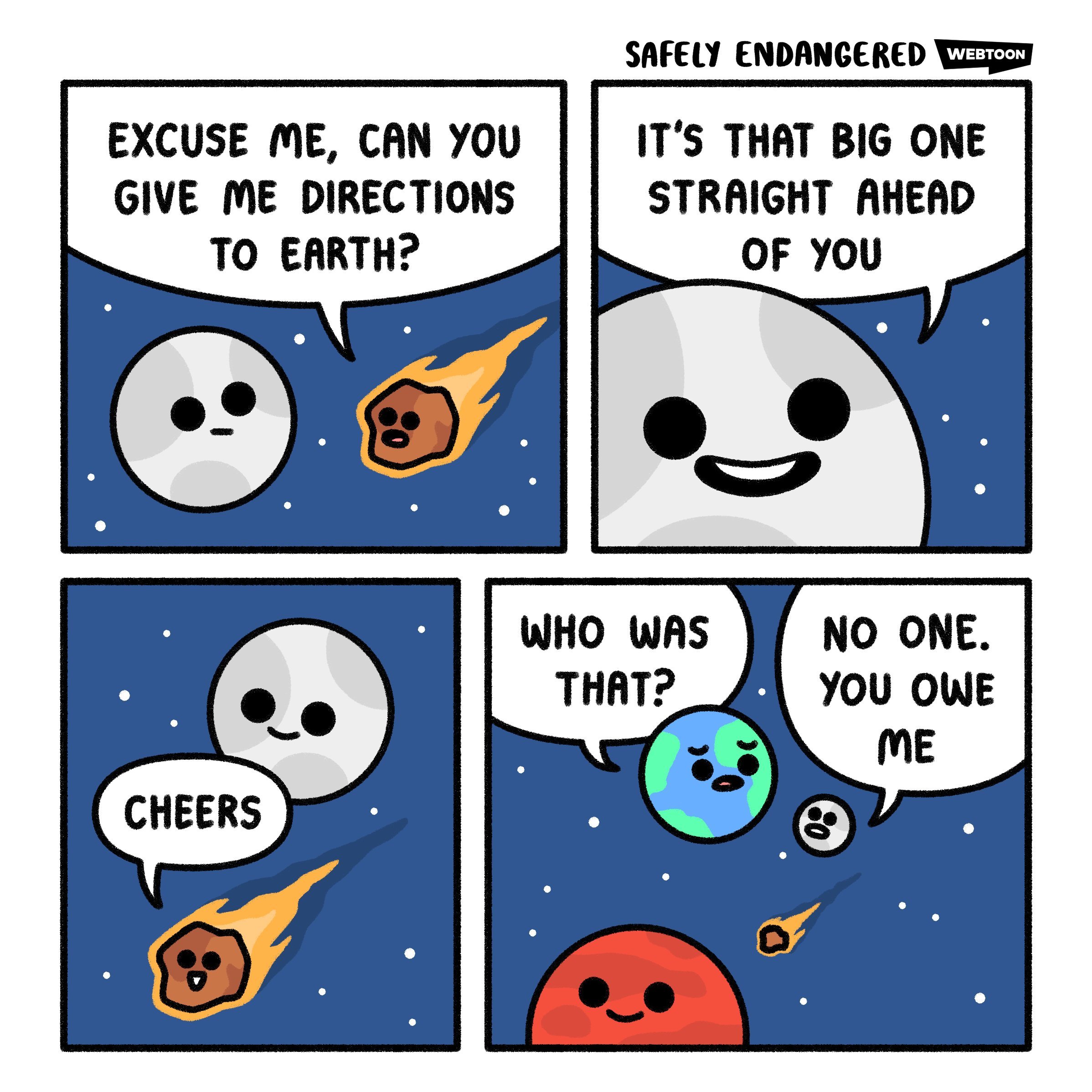this post was submitted on 09 Dec 2024
708 points (99.2% liked)
Comic Strips
17089 readers
23 users here now
Comic Strips is a community for those who love comic stories.
The rules are simple:
- The post can be a single image, an image gallery, or a link to a specific comic hosted on another site (the author's website, for instance).
- The comic must be a complete story.
- If it is an external link, it must be to a specific story, not to the root of the site.
- You may post comics from others or your own.
- If you are posting a comic of your own, a maximum of one per week is allowed (I know, your comics are great, but this rule helps avoid spam).
- The comic can be in any language, but if it's not in English, OP must include an English translation in the post's 'body' field (note: you don't need to select a specific language when posting a comic).
- Politeness.
- Adult content is not allowed. This community aims to be fun for people of all ages.
Web of links
- [email protected]: "I use Arch btw"
- [email protected]: memes (you don't say!)
founded 2 years ago
MODERATORS
you are viewing a single comment's thread
view the rest of the comments
view the rest of the comments

Here's a <1pg read about Jupiter and comets.
Editorial: It's a double-edged sword that favors us far more often than it doesn't. The human problem is that it only takes one collision to end us.
If we humans did not chronically overestimate self and underestimate risk then we'd all choose to kill ourselves. Individuals can be smart. But, when pressured or at scale we're really fucking stupid.
It wasn't months. It was centuries of upheaval before systems restabilized, double digit human generations.
Sure, the meteror's impact wouldn't kill all of humanity. The subsequent choices of the few that remained almost certainly would. We're fragile, ordinary creatures that just got here and immediately set about killing one another and the planet itself.
A very human response.
The Deccan Traps probably didn't help either.
Oh, by the way, didn't the Phlegraean Fields start acting up recently..?
I mean it's a mathematical inevitability that earth will get hit eventually. Having Jupiter there just gave us better odds. Luck doesn't last forever though.
I think the odds are better that we kill ourselves before a comet does it for us ;)
Oh I've felt that way for decades. Humanity is never escaping this rock.
All we need to do is make sure we keep talking.
Just as his namesake god, sometimes benevolent, sometimes an asshole. Though slightly less of an asshole, it seems
I see what you mean. But, take out the word "slightly" and it's also how most of us perceive ourselves and how we should be treated by an authority. It seems exemplified in our anthropomorphized perceptions of most gods.
Yeah, polytheistic gods are basically people, with all consequences thereof. Powerful, but not omnipotent, nor omniscient.
We've been telling stories of those people to make sense of the universe, but the story is ultimately about us.